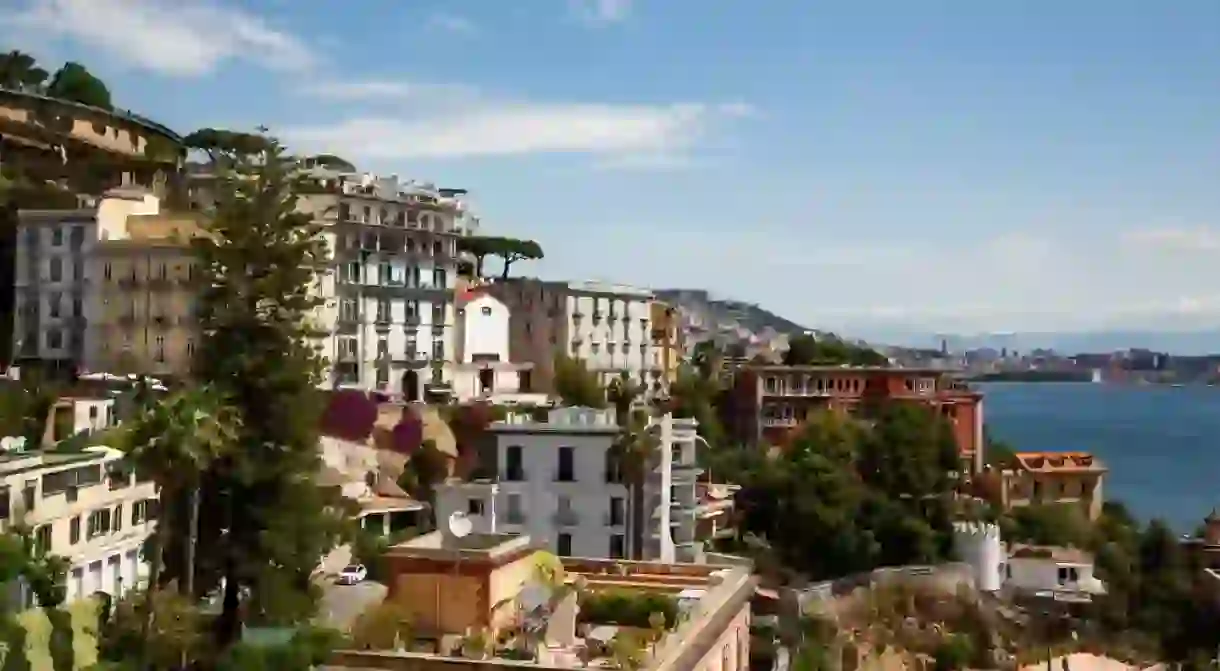8 Amazing Day Trips to Take From Naples by Boat

Naples makes for a very memorable place to sail into, with mirror-like waters in the bay to greet you, the volcanic cone of Mount Vesuvius rearing its head and a colourful urban sprawl rolling towards the hills. The province of Naples has been settled for more than 2,000 years and there’s a multitude of Roman sites in the area worth dipping into, the best known of which are Pompeii and Herculaneum. The excellent beaches and beautiful islands are other highlights, with a boat being the best way to navigate these tucked away spots. Here we reveal some of the best day trips you can take from Naples if you’ve got your own boat.
Procida
Natural Feature

The island of Procida is small enough to explore on foot and despite its diminutive size, there are two harbours. Chiaiolella, on the south coast, welcomes yachts. Corricella, in the northeast of the island, is largely reserved for fishing boats though you’ll want to check out the quayside restaurants. The nature reserve across the footbridge in Vivara is a must-see for its birdlife, as are the church, museum and catacombs of the Abbey of St Michael.
Ischia
Architectural Landmark

Ischia is a magical, postcard-perfect island in the Bay of Naples. The first thing you’ll see as you approach the rocky outcrop is Castello Aragonese. Hiero I of Syracuse built the original fortress in 474 BC but the current fortifications were the result of modifications made by Alfonso V of Aragon in the 15th century. Continuing on the historical theme, Palazzo dell’Orologio is home to the Sea Museum which details the history of the Ischia fishing industry. The island also boasts several excellent beaches, including Maronti, fed by geothermal hot springs, and Spiaggia dei Pescatori, where fishing boats are parked up on the sands.
Parco Sommerso di Baia
Natural Feature, Architectural Landmark
Plunge back in time with a visit to the protected marine area of Parco Sommerso di Baia, which houses the remains of an ancient Roman city and is located close to the marina of Porto di Baia. The submerged town of Baia was described by one writer at the time as a “resort of vice”. In the 16th century, the earth’s crust shifted and the land on which Baia stood was flooded. Today, it’s an underwater Pompeii and you’ll need to don scuba gear to explore what remains. The rewards are great: crusty statues perch precariously on the seafloor and the remains of summer villas owned by Nero, Caligula and Julius Caesar sit alongside the thermal baths.
Gaiola Island
Natural Feature

Gaiola Island consists of a couple of outcrops of golden limestone, linked by a thin rock arch. Its beach is split in two with one half forming part of the Gaiola Underwater Park. The picturesque marine reserve is well worth checking out, with an abundance of fish and the ruins of Imperial Villa Pausilypon, which dates to the first century BC, serving as an underwater wonder. Visitor numbers are strictly limited, so get there early to reserve your place for a swim or spot of snorkelling.
Posillipo
Architectural Landmark, Historical Landmark
The affluent residential quarter consists of grand hillside villas enveloped by mature trees. The lavish properties enjoy unrivalled views of the coast and Mount Vesuvius beyond. Along with being home to many architectural gems, another draw is the area’s abundance of archaeological sites. Be sure to see the Palazzo degli Spiriti, a waterfront ruin that dates back to the first century BC and the Grotto of Sejanus, a long tunnel that leads to the elusive Imperial Villa of Pausilypon.
Pompeii
Architectural Landmark, Historical Landmark

Moor up in the Marina di Stabia and you’ll be well placed to visit Pompeii. The archaeological site is just a 15-minute drive from the harbour or less than an hour on foot. Vesuvius famously destroyed the town when it erupted in 79AD. Archaeologists have painstakingly excavated the site, uncovering a Roman forum, private villas, a brothel and the main street where you can still see the ruts worn by ancient cartwheels. Herculaneum, a more compact site but just as compelling, is a short train ride away.
Torre del Greco
Architectural Landmark
The city of Torre del Greco has a thriving coral heritage – you might hear people refer to its citizens as Corallini. Though legislation protects the blood-red local coral, there’s a booming industry in carving imported coral into cameos and other jewellery pieces. You can buy the distinctive pieces throughout the town and there’s also a museum devoted to its story. Visiting yachts are accommodated on Torre del Greco’s seasonal pontoons; berths are available from May to October.
Miliscola Beach
Natural Feature
Navigate your way to this long, sandy beach for some superb views of Procida and Ischia from across the Tyrrhenian Sea. To get there it’s about an hour’s walk from the marina of Porto di Acquamorta with the peaceful Laghetto di Torrefumo nature reserve to visit on your way. Some stretches of Miliscola are quiet and undeveloped while others pockets are more lively with beach bars, sun loungers and umbrellas on offer.













